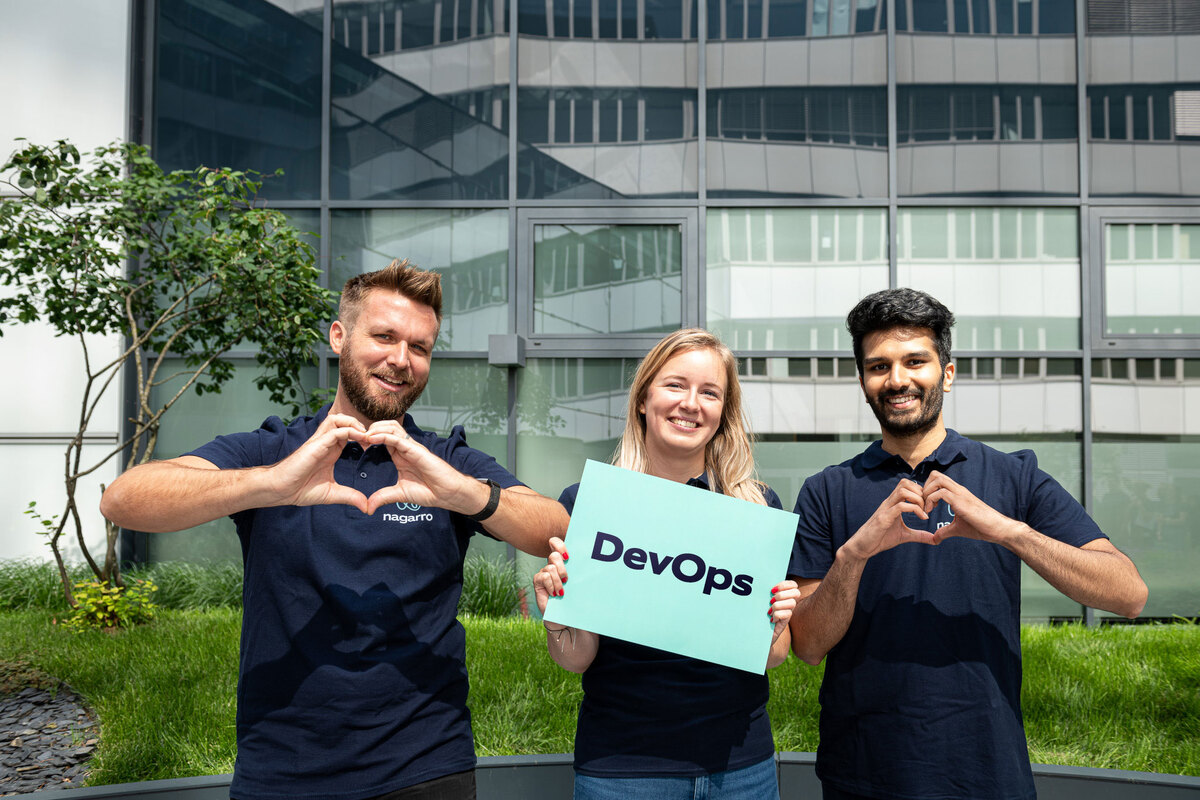State of DevOps Report: How to stop worrying about CI/CD
Sponsored by NagarroCompanies can overcome challenges and realise the benefits of organisational structures by applying DevOps practices and tools

DevOps has arrived and matured in almost all organisations across many domains, continuing to break down silos between development, operations and other stakeholders. Continuous integration and continuous deployment (CI/CD) is being adopted widely as a key practice for frequent and reliable delivery.
However, organisations can often become weighed down by the challenges of technology and the need for automation. The Nagarro State of DevOps Report 2022 has brought to light many practices that can help companies improve when it comes to CI/CD and to deliver efficiently in terms of software.
Technical practices associated with CI/CD are crucial, but they are insufficient to achieve superior software delivery performance. Those that are part of the continuous delivery process include:
- Deploying changes automatically
- Enabling observation and comprehensive monitoring
- Provisioning service infrastructure using the infrastructure as code (IaC) technique
- Managing an automated release pipeline and moving towards containerised workloads
Organisations are adopting helpful and valuable technical practices that directly impact software delivery performance (SDP). SDP involves both speed and stability, and both can be achieved without trade-offs. Nowadays, organisations can measure it by four industry-standard key metrics:
- Deployment frequency
- Lead time for changes
- Change in failure rate
- Mean time to recovery
These metrics are simple yet powerful tools to help leaders and teams focus on measuring and improving what matters. A crucial place to start is delivery pipelines, so that these metrics can be measured and possible bottlenecks in the underlying software become visible.
The challenge of continuous improvement
It seems to be universally accepted that continuous delivery and its associated technical practices are crucial for high-performing delivery teams. So what causes the evident gap in many organisations’ overall SDP? As shown in the State of DevOps Report, almost 20 per cent of businesses can still be classified as “low performers”. Our research has shown that deploying these technical practices is not sufficient to achieve a high-delivery performance. Organisations need to start focusing on additional differentiators.
The information gathered for the report and past experiences with different clients indicate that focusing primarily on team-internal practices (such as CI/CD) creates a valuable and crucial foundation. However, its potential is limited if we do not leverage the benefits of optimising inter-team collaboration.
Building effective inter-team collaboration
Unfortunately, the focus on improving team autonomy is often disregarded as organisations prefer to work on more tangible, often technical, topics. This means they fail to foster a culture of continuously experimenting with and validating new ways of collaboration, which is even more important than relying on well-established technical practices.
This deliberate improvement approach improves team collaboration and makes value delivery quicker and more reliable. It will also have a tangible impact on the overall work culture by applying a genuine continuous improvement mindset throughout the organisation – one key aspect of adopting DevOps.
We still maintain that the mantra of continuous improvement will always remain applicable and helpful: start with the basics, then identify your unique constraints.
Nevertheless, organisations must realise that this does not only apply to technical decisions. Similarly, and arguably more valuable, is its use in organisational improvements.
Tried-and-tested success factors
Following this line of reasoning leads to the conclusion that systematic experiments and continuous and deliberate improvements require a more formal way of describing organisational design. This would enable organisations to compare their structures with industry best practices while clearly identifying potential inefficiencies and bottlenecks and without relying on subjective interpretations and potentially biased point-of-views.
Various models can be helpful, depending on the aspect:
- DevOps Topologies can model and compare how software delivery capabilities can be distributed within and between teams.
- Team Topologies offer a language to describe team interaction modes and common patterns for a team’s purpose.
- UnFIX provides a holistic approach to describe complex software delivery in organisations. This helps them to support continuous flow while accepting that a direct impact on the technical solution architecture is inevitable.
To promote collaboration and teamwork, it’s also important to create a positive and inclusive culture within the organisation. This can include encouraging open communication, recognising and valuing diverse perspectives, and fostering a sense of shared purpose and accountability among team members. An organisation’s design should focus on team autonomy and diversity and facilitate socialising opportunities to achieve top-notch SDP. When done correctly, such initiatives will have not only a positive impact on work-related performance but also on an individual’s well-being.
It should be emphasised that none of these initiatives can be successful without appropriate technical foundations available to support them – such as comprehensive, easy-to-use self-service platforms, high-quality collaboration tooling and rigorous digitalisation of processes.
Nagarro has helped many of its clients on their DevOps journey. For one, a global provider of intelligent transport systems, Nagarro experts helped identify the need to improve the way the organisation works and kickstart its DevOps journey. A DevOps workshop, technical excellence training and several working sessions using an agile approach created the basis for continuous integration and delivery pipelines for various technologies. At the same time, an adaptive culture was created that responded appropriately and quickly to rapidly changing market situations. By modifying organisational structures, team collaboration, software architectures, processes and practices, the client was able to achieve a faster time to market.
While solving technical issues with technology and achieving more automation throughout the delivery process does provide value, modern organisations must accept their limitations. They won’t solve many important and difficult problems and most likely won’t ever find the “right” solution. A mindset of deliberate exploration, continuous experimentation and systematic validation must be adopted to thrive further in this complex environment – so why not stop worrying about finding the right solution and start loving DevOps?
For a deep dive into these insights, download the Nagarro State of DevOps Report, which proposes ideas, approaches and findings to help organisations achieve their goals faster.
By Manisha Mittal, Co-Lead Quality DevOps Practice, Nagarro

Business Reporter Team
Most Viewed
Winston House, 3rd Floor, Units 306-309, 2-4 Dollis Park, London, N3 1HF
23-29 Hendon Lane, London, N3 1RT
020 8349 4363
© 2024, Lyonsdown Limited. Business Reporter® is a registered trademark of Lyonsdown Ltd. VAT registration number: 830519543





